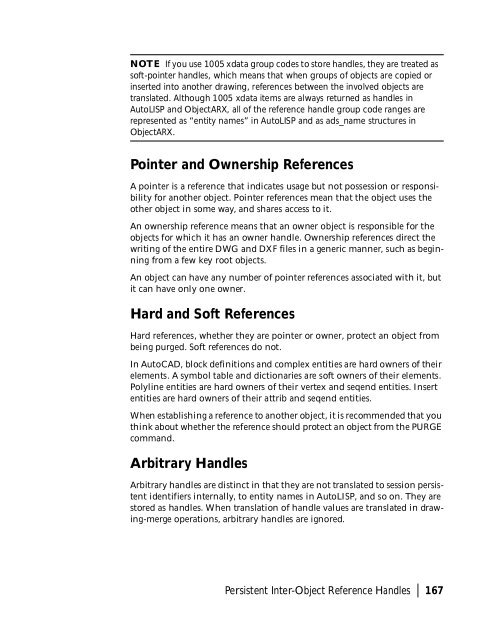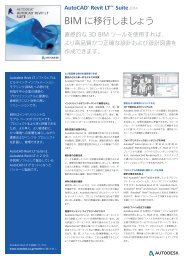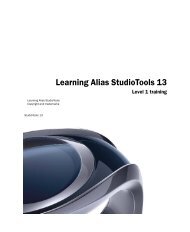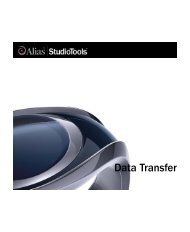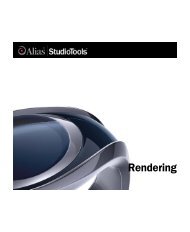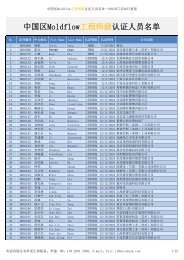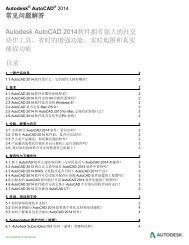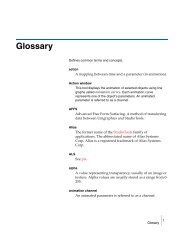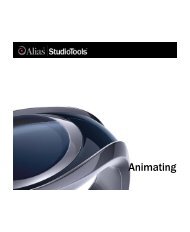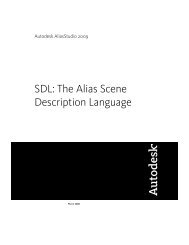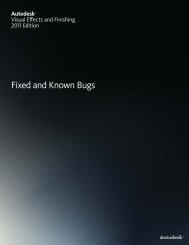You also want an ePaper? Increase the reach of your titles
YUMPU automatically turns print PDFs into web optimized ePapers that Google loves.
NOTE If you use 1005 xdata group codes to store handles, they are treated as<br />
soft-pointer handles, which means that when groups of objects are copied or<br />
inserted into another drawing, references between the involved objects are<br />
translated. Although 1005 xdata items are always returned as handles in<br />
AutoLISP and ObjectARX, all of the reference handle group code ranges are<br />
represented as “entity names” in AutoLISP and as ads_name structures in<br />
ObjectARX.<br />
Pointer and Ownership References<br />
A pointer is a reference that indicates usage but not possession or responsibility<br />
for another object. Pointer references mean that the object uses the<br />
other object in some way, and shares access to it.<br />
An ownership reference means that an owner object is responsible for the<br />
objects for which it has an owner handle. Ownership references direct the<br />
writing of the entire DWG and DXF files in a generic manner, such as beginning<br />
from a few key root objects.<br />
An object can have any number of pointer references associated with it, but<br />
it can have only one owner.<br />
Hard and Soft References<br />
Hard references, whether they are pointer or owner, protect an object from<br />
being purged. Soft references do not.<br />
In AutoCAD, block definitions and complex entities are hard owners of their<br />
elements. A symbol table and dictionaries are soft owners of their elements.<br />
Polyline entities are hard owners of their vertex and seqend entities. Insert<br />
entities are hard owners of their attrib and seqend entities.<br />
When establishing a reference to another object, it is recommended that you<br />
think about whether the reference should protect an object from the PURGE<br />
command.<br />
Arbitrary Handles<br />
Arbitrary handles are distinct in that they are not translated to session persistent<br />
identifiers internally, to entity names in AutoLISP, and so on. They are<br />
stored as handles. When translation of handle values are translated in drawing-merge<br />
operations, arbitrary handles are ignored.<br />
Persistent Inter-Object Reference Handles | 167


